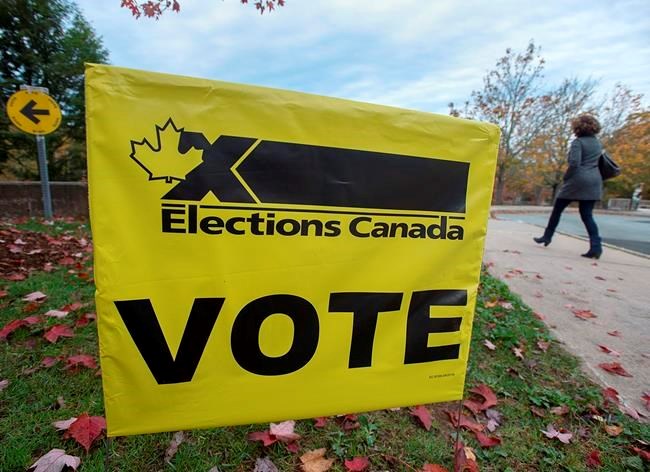OTTAWA — Elections Canada is bracing for an explosive increase in the number of Canadians who vote by mail should the country be plunged into an election during the COVID-19 pandemic.
Public opinion research commissioned by the agency suggests 21.8 per cent of voters would prefer to cast their ballots by mail during the pandemic, while 58 per cent would prefer to vote in-person at advance or election-day polling stations.
In last fall's federal election, fewer than 50,000 of the 18.4 million Canadians who cast ballots did so by mail — 34,142 of them living abroad and just 15,403 living in Canada.
Elections Canada's research suggests that number could shoot up to about four million if an election is held while the country is still in the grip of COVID-19, and the agency warns that such an increased volume of mail-in ballots could delay the release of election results.
The results of the agency's research are included in an updated posting on Elections Canada's website about the impact of the pandemic on its planning for an election, which could come as early as this fall.
That's when public health experts fear the country could be hit by a second wave of the deadly coronavirus that causes COVID-19.
The Liberal government holds only a minority of seats in the House of Commons and could be defeated at any time.
The first opportunity for opposition parties to bring down the government will come shortly after Parliament returns on Sept. 23 with a throne speech laying out the government's plan for reviving the pandemic-ravaged economy. The throne speech will be put to a confidence vote.
Elections Canada says a number of measures to ensure the health and safety of voters and poll workers are already in the works, including increasing the capacity of the agency's mail-in voting system.
Other measures include establishing physical distancing protocols for polling stations and local Elections Canada offices, procuring masks and single-use pencils that can be provided to voters who don't bring their own, reducing the number of poll workers needed and cancelling voting on post-secondary school campuses, many of which are shut down as programs are delivered online during the pandemic.
Chief electoral officer Stephane Perrault further plans to formally recommend next month that Parliament make some "limited" changes to the Canada Elections Act that would allow the agency to conduct an election in the midst of the pandemic more safely.
Those changes include allowing in-person votes to be cast over two weekend days, instead of the usual single polling day on a Monday.
As well, he'll recommend a change to allow mail-in ballots sent before the deadline to continue to be accepted until the day following the two-day, weekend voting period.
And he wants unspecified changes to allow greater flexibility for returning officers to safely serve electors in long-term care facilities, increasing their number of voting days and taking into account each facility's needs.
The website posting says Elections Canada has not considered recommending internet voting because that would require significant planning and testing to ensure it could maintain the confidentiality, secrecy, reliability and integrity of the vote. Given the time constraints, the agency says the online voting option "cannot be explored properly at this time."
The agency says it is still assessing how much it will cost to implement all the measures needed to conduct an election safely during the pandemic.
Should an election take place before Elections Canada can fully implement safety measures or before the recommended legislative changes are made, the agency says it will focus on basic safety measures for voters and election workers, like physical distancing and protective equipment.
It warns that voters may experience delays at the polls as a result but says a longer campaign period would give it more time to implement safety measures and process mail-in ballots.
The Canada Elections Act stipulates that an election period must be set at a minimum of 36 days and no longer than 50 days but it is up to the prime minister to determine the exact length of the campaign within those parameters.
The agency's post reiterates that "in an extreme and unexpected case, based on the advice of public health experts, the chief electoral officer could certify that it has become impracticable for Elections Canada to administer the election in one or several electoral districts and recommend to the governor-in-council (cabinet) that the election writ be withdrawn."
Recommending that an election be cancelled "has never been done in Elections Canada's history," it notes.
This report by The Canadian Press was first published Aug. 27, 2020.
Joan Bryden, The Canadian Press



